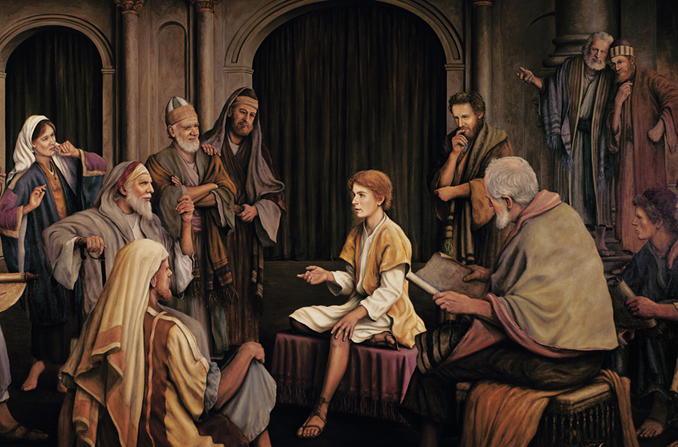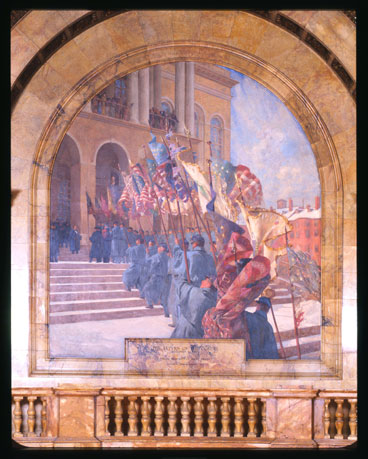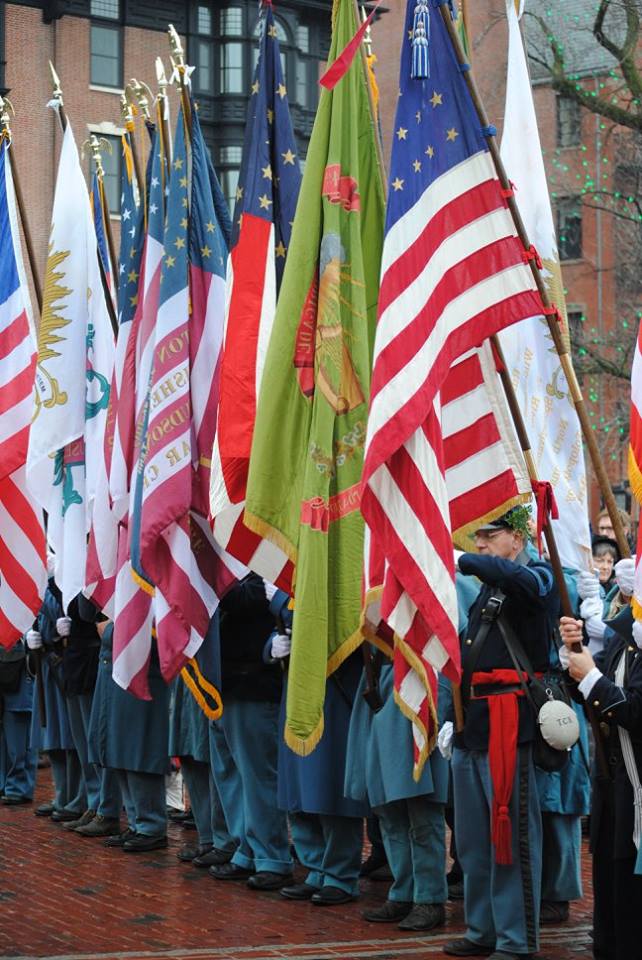
The countdown continues with the 7th most read post, Do Symbols Matter?
This post comes from February of 2014 and was originally written for my weekly newspaper column. It also appeared on the Huffington Post.

The countdown continues with the 7th most read post, Do Symbols Matter?
This post comes from February of 2014 and was originally written for my weekly newspaper column. It also appeared on the Huffington Post.

As we continue the countdown this was the 8th most read post of 2015 Good Leaders Must First Be Good Followers.
The post comes from August of 2011 and focuses on the concept of followership.

We continue the countdown with the 9th most read post of 2015, Death is nothing at All.
I had just completed my first Memorial Service for Hospice Patients and I shared a poem I had found about death.

As 2015 starts to wind down I thought I would link to the top posts of 2015.
#10 was a sermon I preached called Time to Return to Your Father’s House and it was based on Luke 15:11-32

“Jesus increased in wisdom and years.” Or as I like to say, “Jesus grew up.” This entire story is about Jesus growing up. It seems like just yesterday, or rather a few days ago that we were all witnesses to his birth and now, through the magic of Scripture, he is twelve years old and wandering off from his parents while on a family trip.
He hears the report, “Now every year his parents went to Jerusalem for the festival of the Passover. And when he was twelve years old, they went up as usual for the festival.” More than likely they would have stayed in Jerusalem for seven or eight nights during this festival period.
Then we read the news in verse 43: “When the festival was ended, and they started to return, the boy Jesus stayed behind in Jerusalem, but his parents did not know it.” Starting to sound like the movie Home Alone. We are not given much information about how he got separated from his parents or why he stayed behind, but my guess it this is how it happened.
In these days, people traveled on a journey together for protection. Life on the road was not easy, and it was very dangerous to be going especially with young children. To get from Galilee to Jerusalem they would have had to go through Samaria, and the people in Samaria did not like their Jewish cousins. There were also robbers and hijackers along the road that would take your money and your donkey. The group would have started early in the morning with the woman and children first and the men following along. As night approached, they would all gather together and rest. Children would move up and down this group visiting with family and friends, and everyone would watch out for them. One day they travel without Jesus, they turn around and spend the next day going back to Jerusalem, and they find him in the temple.
There are two ways to look at this story, and we will begin from the view of his parents. They assume that Jesus is with them, and they start towards home with all of their other relatives. As they stop for the first night and gather around the fire, they realize that he is not with them. They start to panic a little, they look around the other groups to see if maybe he is with them, they get slightly more anxious, they cannot find him, the sun has set, and there is nothing else they can do tonight. They try and sleep but toss and turn all night. As soon as dawn breaks they headed back to Jerusalem, alone and unprotected to search for the boy.
Their fear must have been at the highest levels. Every step they were asking what might have happened. All sorts of images run through their heads. Each year some 50,000 children in the US are abducted and know exactly what Mary and Joseph are going through.
Verses 46-48 continues the story. “After three days they found his in the temple, sitting among the teachers, listening to them and asking them questions. And all who heard his were astonished at his understanding and his answers. When his parents saw him they were astonished, and his mother said to him, ‘Child, why have you treated us like this? Look, your father and I have been searching for you in great anxiety.’” They must have been going back and forth between great joy that they found him and anger that he had done this.
The earliest written documents of the church had no mention about Jesus as a boy or how he grew up. Common wisdom would suggest this is because he grew up as any normal child would have in those days. Even in Luke’s Gospel, written forty years after the Resurrection, only has this story and then nothing else until we see him at the wedding. Luke added this story to his Gospel because were interested in what happened in those lost years of Jesus life.
Jesus was no boy wonder. He forgot his parents, and they came looking for him and found him in the Temple after three days of fear-filled searching. Mary told Jesus exactly what he had put them through, as any parent would I am sure.
But what about the perspective of Jesus, how did he see this event? He was a child. Perhaps the reason Mary and Joseph did not look for him when they started out on their journey was that they knew he would be with other family members. They take this trip each year, and I am sure this is what would have happened in the past.
Being twelve years old, this would have put Jesus halfway between two important categories for Jews, women, and children on one side, men on the other. He was halfway between, not a child anymore but not yet a man. Stuck between and unsure of where he is supposed to be.
The earliest recorded words of Jesus are in verse 49, “Why were you searching for me? Did you not know that I must be in my Father’s house?” We have three possibilities of what Jesus might be saying here in this passage. Jesus could be saying that he is about his father’s business, or that he is among his father’s people, or in the temple precincts. These words of Jesus are ambiguous, but we have to assume that Mary and Joseph knew what he was saying since they did not question his.
But most importantly here, Jesus is not speaking about his earthly father Joseph, but of God his father. Jesus’ question, in the original language, is asked in such a way that he expects them to understand, and he seems a little disappointed that they don’t.
Right here in front of us, Jesus is growing up, and he is breaking the emotional ties with his parents. We can see this because he does not feel guilty about what he has put them through. As a younger child he would have been trying to please his parents, but now he is doing the work that he has come for. The real guilt would have come if he had not ventured out on his own and ask questions and to give some answers with the teachers in the Temple.
Jesus is not rebelling against his parents; he is growing up. He will go back to Nazareth with them, back into the home that they have made, he will learn the trade of Joseph and obey his parents. Verses 51-52: “Then he went down with them and came to Nazareth, and was obedient to them. His mother treasured all these things in her heart.” Just as she did when the Shepherds came years before. “And Jesus increased in wisdom and years, and in divine and human favor.”
Jesus is growing up. The same Gospels that record the works and sayings on Jesus also record his experiences. Jesus grows in body, mind, and spirit, just as we all should. We are created to grow, change, mature. Our genes hold the blueprint for natural development. Jesus shows us what it means to grow in the faith that God is our heavenly father.
Like Jesus in this story today, none of us is exactly what our earthly parents want us to be. Sometimes parents want their children to be extensions of themselves. In such a relationship children are just there to finish were their parents began, or to live their parents dreams. Like Jesus, all of us must leave our parents and leave behind the emotional dependence upon them. Maybe we even have to leave behind some of their beliefs that don’t fit us anymore.
Some have tried this in many different ways, moving out to our home or getting married and maybe even having our children, but this can get us lost trying to take these shortcuts in our lives. The truth is that we have to be at home with ourselves and with God before we can even think about leaving our parents.
Jesus begins to break the emotional ties with his parents, but he does not feel guilty because he is not rebelling against them or their way of life. His parents are confused, but they are not bitter or angry because they know he is not fighting them. He is growing as God intended him to grow.
Here is where God has pointed us from our birth, to be standing attentive to God, responsible for ourselves, wiling to live with others without blaming them for who they are or what they are not. By doing this, we become less of a burden and more of a delight to those around us.
Something needs to happen for us to being this part of the journey. Maturity is when I accept my identity from God, an identity that started that started with but is not limited to my original family. Maturity is when I, like the rest of God’s children, respond to the continuing grace of God in Jesus Christ.
Perhaps the New Year is an opportunity to leave our parents, to stop blaming them or excusing ourselves, and, like Jesus, to place our ultimate trust only in God as our living parent. We have just experienced the birth of Christ, and now we watch him grow. Now it’s our turn to grow and be about our father’s business.

It is not often that we get to participate in a once in a lifetime event but recently I had just that opportunity. On December 22, 1865, representatives of the regiments from Massachusetts assembled on the Boston Common. They had survived four years of war and were now safe at home and would be able to gather with family and friends for Christmas. But they had one more job to do, they had to return their battled scarred flags to the Governor of Massachusetts.
It had been the custom, since the Revolutionary War, for the Governor of Massachusetts to present each regiment with their flag as they departed for battle. These colors would become the symbol of their honor and a rallying cry on the battlefield. During the confusion of battle, a soldier would be able to see his regimental colors flying in the wind and know where his comrades were at all times. The soldier that carried the colors was out in front, with no weapon to defend himself, and was very often the one who was shot first as the units marched across the field. Each man that took that flag in his hands knew the fate that he was certain to meet, but he willingly volunteered for the job.
On that December morning, it was time to return those flags to the State that had provided them. They would return in a lavish ceremony at the Massachusetts State House in Boston and immortalized on canvas for all to see. The flags and the men that had fought with them had finally come home. They came from all parts of the state, small towns, and large cities. Factory workers and farmers, native born and immigrants, fighting for different reasons but unified under the flag of their regiment.
Massachusetts Governor John A Andrew, who served as governor during the years of the Civil War, was standing at the bottom of the steps of the State House as the regimentals flags, flying in the wind, approached from the Boston Common. Seeing those colors, marked with the scars and blood of many battles, coming back home must have been an impressive sight to see.
The units formed in front of the Governor and his party and the ceremony began with a prayer led by the Reverend Samuel Lothrop. In this prayer, Rev. Lothrop prayed for the nation and those that had served and continued to serve. He prayed for those who were injured and those who were recovering, and he prayed that wars would one day cease and we would know peace.
Lord, grant that we may yet see the day when war and fear of war shall no longer be; the day when peace shall become our common possession; the say when Your will shall be done on earth as it is in Heaven. O Lord, hear our prayer for our sakes. Amen.
The prayer being finished Brigadier General Darius N Couch stepped forward to address Governor Andrew. He told the Governor that they had come to return to the State the colors that had been entrusted to them. With great emotion he paused, and then continued;
You must, however, pardon us if we give them us with profound regret, for these tattered shreds forcibly remind us of long and fatiguing marches, cold bivouacs and many hard-fought battles. The rents in their folds, the battle-stains on their escutcheons, the blood of our comrades that has sanctified the soil of a hundred fields, attest the sacrifices that have been made, the courage and constancy shown, that the nation might live.
Governor Andrew then addressed those assembled and reminded all listening of the sacrifices that had been made.
These banners return to the government of the Commonwealth through welcome hands. Borne, one by one, out of this capital, during more than four years of Civil War, as the symbols of the nation and the Commonwealth, under which the battalions of Massachusetts departed to the field, they come back again, borne hither by surviving representatives of the same heroic regiments and companies to which they were entrusted.
General, I accept these relics in behalf of the people and the government. They will be preserved and cherished, amid all the vicissitudes of the future, as mementos of brave men and noble actions.
The soldiers then marched up the steps of the State House and returned the flags.

150 years later, on December 22, 2015, men gathered on Boston Common. Many of the men who came had ancestors that fought, and some died, in the battle to keep the Union together. Once again they came from small towns and cities all over the Commonwealth. They gathered in the rain and held in their hands the colors of the regiments that had gone off to war. They marched through the Boston Common to the sound of fife and drum, up the stairs, past the monument to the 54th Massachusetts, across Beacon Street to the Massachusetts State House. The brief ceremony was recreated and, as had their ancestors 150 years ago, they marched up the stairs and through the center doors of the State House.
I was there and was surprised by the emotion as those flags, one by one, went past and up the stairs. I thought of all the men that had gone off to war and those who did not return, not just from the North but the entire country. What had that war cost us and what does it still cost us today.
I had the honor of reading the prayer prayed on that day by Rev. Lothrop and was taken aback by the words and how fitting they were for that day and how fitting they are for today. We all long for the day when all wars will cease and peace will reign on earth.
I am often asked why I participate in reenactments and the answer I give to so that we never forget. That we never forget the brave men and woman who sacrificed so much that we can have what we have today and also to keep their memories alive and continue to tell their stories. It is our collective responsibility to uphold their memories and to live up to the ideals that they fought for.
I will not soon forget this day. It was an honor to have been a part of remembering.
by Edward Hays from Prayers for a Planetary Pilgrim
The dark shadow of space leans over us. . . . .
We are mindful that the darkness of greed, exploitation, and hatred
also lengthens its shadow over our small planet Earth.
As our ancestors feared death and evil and all the dark powers of winter,
we fear that the darkness of war, discrimination, and selfishness
may doom us and our planet to an eternal winter.
May we find hope in the lights we have kindled on this sacred night,
hope in one another and in all who form the web-work of peace and justice
that spans the world.
In the heart of every person on this Earth
burns the spark of luminous goodness;
in no heart is there total darkness.
May we who have celebrated this winter solstice,
by our lives and service, by our prayers and love,
call forth from one another the light and the love
that is hidden in every heart.
Amen.
In the previous essay I presented the signs and symptoms of stress and burnout. In this essay I will prevent some ways that you can learn to deal with stress. As with any issue like this always consult with a health professional.
A lot of people come to me and say that their stress level is on the rise this time of year and they are not sure what to do about it. Well first let me say that we a put way too much emphasis on a season of the year that is designed to slow down and ponder. The danger of stress is it accumulates, unless dealt with as it is happening, and will eventually lead to burn out. As a pastor I need to be aware of the amount of stress that the volunteers in my church are under and ensure that they are not taking on too much.
With all of that said, in this essay I will present the signs and symptoms and in the next essay I will present some ideas on how we can adjust and learn to deal with stress before it gets to burn out.
Stress seems to be a normal part of life but if we understand ourselves and the signs and the symptoms usually stress can be dealt with in the normal course of our lives. So what do we need to look for?
1. Exhaustion – A clear sign is feeling tired all of the time. This can be emotional, mental, or physical. It is a sense of not having any energy or being completely spent.
In the next essay, how to deal with this.